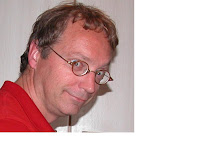In my previous post, I did not yet incorporate the final day. This one was in fact one of the better parts of the conference, although it was only half a day. It included discussions on citizen engagement as the next phase in e-government, e.g. aspects like e-rulemaking (although I did not grasp the technicalities presented the previous day), e-townhalls and, of course, Gov 2.0 (every itself respecting sector has a 2.0 strategy). This particular presentation combined with the others raised ideas with me for a next generation government: Government as an ecosystem. In such a particular situation, the government should consider its particular function. Currently, most local municipalities focus on so-called support operations and administration. They have no particular knowledge and means for policy making and incorporating new policies easy. They should focus on the latter one. Support operations can be shared, examples were presented, and administration can be handled by local offices with central IT facilities (like financial institutions).
Another presentation was on an E-Government Framework, which was composed of aspects like purpose and role of government, societal trends, technology changes, information management, human elements and interaction/complexity. The framework is based on global research. The basic message is: interdisciplinary research is required.
The final presentation on urban simulation was especially of interest for one of my assignments. It gave insight in separating value indicators and simulating urban changes to get new values for those indicators. The open source simulation environment UrbanSIM was adjusted to support a number of value indicators; the value indicators could not be configured. Furthermore, the next phase in research for urban simulation is citizen participation.
Staat New York doet kerstinkopen bij ASML
2 years ago





No comments:
Post a Comment